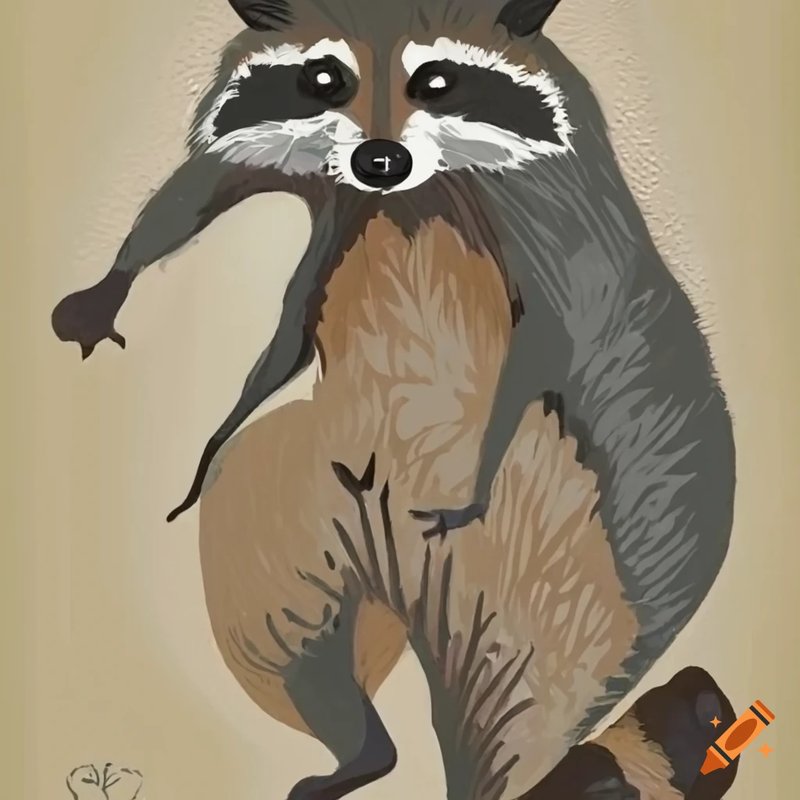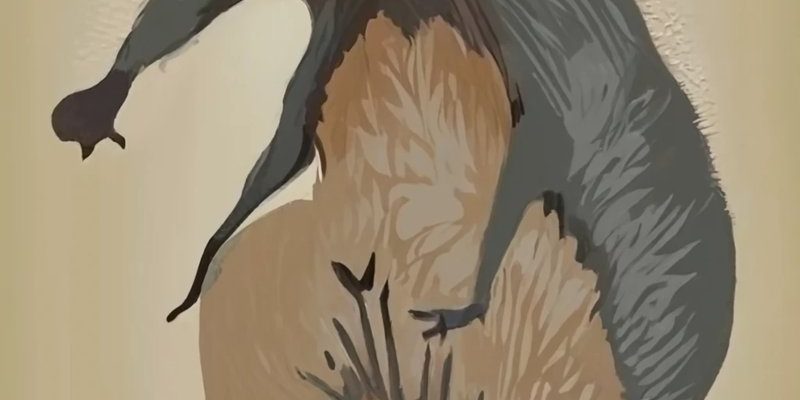
From Native American tales to modern cartoons, raccoons carry intriguing meanings. Sometimes they’re portrayed as tricksters, while in other contexts, they represent survival and resourcefulness. Understanding these diverse representations not only highlights the raccoon’s unique place in nature but also reveals our relationship with them as humans. So, grab your cup and let’s explore the fascinating world of how raccoons are viewed across different cultures.
The Raccoon in Native American Folklore
Many Native American tribes have rich narratives featuring raccoons, often focusing on their cleverness and problem-solving skills. For instance, the Cherokee people refer to the raccoon as *the “trickster,”* much like how the coyote is viewed in other stories. The raccoon’s notable dexterity with its paws symbolizes the ability to navigate challenges and discover solutions, reinforcing the idea that intelligence often comes from adaptability.
In these stories, raccoons are sometimes seen as mischievous beings that outsmart others, illustrating a dual nature of being both endearing and frustrating. Think of it as a clever friend who can charm you one moment and annoy you the next! These narratives not only entertain but also teach valuable life lessons about resilience and wit.
Moreover, raccoons often appear in creation myths. They might be depicted as helpers to humans, showing how cooperation and resourcefulness can lead to survival. By highlighting these traits, Native American folklore emphasizes the raccoon’s role as more than just a scavenger; it’s a symbol of harmony between nature and humanity.
Raccoons in Children’s Literature
Children’s books often feature raccoons as delightful characters, bringing joy and laughter to young readers. With their cute faces and playful antics, raccoons are perfect for storytelling. One popular example is “The Adventures of Raccoon and Friends,” where a young raccoon learns important lessons about friendship and kindness.
These stories typically present raccoons in a positive light, showcasing their playful nature while also teaching children about values. The cleverness of raccoons often comes into play as they solve problems and navigate their environment, conveying messages about creativity and resourcefulness.
Moreover, raccoons’ whimsical portrayals in children’s stories speak to their universal appeal. They resonate with kids who relate to the themes of exploration and curiosity. Let’s be honest—what child hasn’t related to the idea of being a little mischievous? Raccoons embody that childhood spirit, making them beloved characters worldwide.
Modern Media and Raccoon Representation
In modern media, raccoons have secured a special spot in pop culture. One of the most famous raccoons is Rocket Raccoon from the Marvel universe. This character redefines the raccoon stereotype, giving it a heroic twist with a blend of humor, charm, and depth. Rocket’s journey shows how a raccoon can symbolize resilience and bravery, overcoming personal struggles while still holding onto a sense of wit.
Shows like “The raccoons” present these animals as socially aware and caring, often dealing with themes of environmentalism and community. By showcasing raccoons as relatable characters, these narratives help bring attention to real-life issues like conservation, urging viewers to consider their own impact on nature.
The portrayal of raccoons in media often contrasts them with the typical views of wild animals. Instead of presenting them as mere pests, stories bring to light their intelligence and adaptability, encouraging a more nuanced view of wildlife. So, next time you see a raccoon on screen, remember: they’re not just cute; they’re pretty complex characters!
Raccoons in Cultural Symbols
In various cultures, raccoons symbolize several traits. For instance, in Japan, they are associated with the tanuki, a creature known for its trickster qualities and shape-shifting abilities. The tanuki embodies joy and live-life-to-the-fullest spirit, similar to how raccoons often approach their adventures.
In addition to trickery, many cultures link raccoons to curiosity. Their habit of exploring and rummaging through our leftovers symbolizes a desire for knowledge and new experiences. Think of them as nature’s little adventurers, always seeking something new to discover. This essence can inspire people to embrace curiosity in their own lives, encouraging exploration and learning.
Additionally, raccoons are often viewed as guardians of the earth or symbols of resourcefulness. Many indigenous cultures see these animals as connected to the cycles of nature, representing balance and survival. Their adaptability serves as a reminder that thriving in various environments is essential for all living beings.
Raccoons and Eco-Consciousness
In recent years, the representation of raccoons has evolved into a symbol of eco-consciousness. Their role as scavengers, while often seen negatively, brings to light the importance of waste management and recycling. Raccoons naturally clean up our messes, serving as a reminder of our responsibility to care for the environment.
When people watch raccoons digging through trash, it can spark conversations about sustainability. Are we using resources wisely? How can we reduce waste? These questions become essential as we navigate environmental challenges. By framing raccoons as eco-warriors, we can rethink our relationship with them and what they represent in today’s world.
Furthermore, a rise in urban wildlife awareness helps people appreciate raccoons as part of their local ecosystems. Understanding how they fit into the bigger picture can foster a sense of responsibility towards nature. In this way, raccoons symbolize the need for harmony between human spaces and wildlife.
The Raccoon as a Trickster Archetype
Throughout various cultures, the raccoon often embodies the trickster archetype. Tricksters are clever, unpredictable characters, breaking the rules and challenging the status quo. They teach us that sometimes, bending the rules is necessary for growth and survival. In many folktales, raccoons exhibit cunning behavior to outsmart their opponents, reflecting the belief that intelligence is just as powerful as strength.
This trickster nature enables raccoons to navigate their environments effectively, showcasing their adaptability. When they encounter challenges, their innovative thinking helps them thrive. These stories emphasize that being resourceful and clever can lead to success, highlighting a valuable trait that transcends boundaries.
Interestingly, the trickster archetype also serves as a mirror for society. Raccoons challenge conventional wisdom, often exposing flaws and emphasizing the need for flexibility. Their mischievous nature encourages us to question norms and think outside the box, reminding us that creativity and resilience are powerful tools in facing life’s challenges.
Raccoons are more than just critters scavenging in the dark. Their roles in culture and folklore reveal a rich tapestry of meanings that invite us to explore concepts like curiosity, resilience, and environmental awareness. Whether as tricksters in ancient stories or beloved characters in children’s literature, raccoons capture our imagination and challenge our perceptions.
By embracing their representations across cultures, we can learn valuable lessons about adaptability and resourcefulness. So, the next time you spot a raccoon in your backyard rummaging through your trash, remember that there’s a lot more to these creatures than meets the eye. They serve as essential reminders of our connection to nature and the importance of living harmoniously with the world around us.

